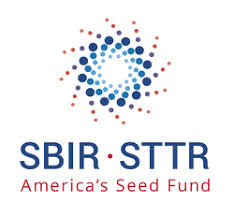- Solutions
- Partners
- Resources
- Blog
- GovCon Source
- GovCon Source Home
- Lean & Agile in the Age of DOGE
- Service Contract Act (SCA)
- DCAA Compliant Accounting
- GovCon Outsourcing & Managed Services
- Government ERP Systems
- Veteran-Owned Small Businesses
- GovCon CyberSecurity
- Graduating 8(a) Program
- SBIRs & Grants
- GovCon Growth Strategies
- GovCon Compliance Audits
- Webinars
- DCAA Compliance
- GovCon Accounting
- Graduating 8(a) Program
- Service Contract Act (SCA)
- GovCon Managed Services
- Government ERP Systems
- GovCon Reviews & Audits
- Cybersecurity Compliance
- Government Grants & Contracts
- Company
Self-Assessment Checklist
Answer a few questions to see if you are correctly and efficiently handling your SBIR grants and contracts.
 Page Summary
Page Summary
SBIR grants involves reporting requirements, including progress reports, financial reports, commercialization plans, IP reporting, and technical reports. Non-compliance can lead to award termination, highlighting the importance of staying current with agency-specific guidelines.
 The Small Business Innovation Research (SBIR) program is a U.S. government initiative that provides funding to small businesses for research and development (R&D) projects. The SBIR program provides grants for innovative technology and products in three funding Phases. The first phase is designed to support a technology or product feasibility evaluation. Businesses that successfully completed Phase I can continue their R&D efforts to Phase II, with the goal of further developing their innovations. Phase III is designed to support marketplace commercialization.
The Small Business Innovation Research (SBIR) program is a U.S. government initiative that provides funding to small businesses for research and development (R&D) projects. The SBIR program provides grants for innovative technology and products in three funding Phases. The first phase is designed to support a technology or product feasibility evaluation. Businesses that successfully completed Phase I can continue their R&D efforts to Phase II, with the goal of further developing their innovations. Phase III is designed to support marketplace commercialization.
The reporting requirements for an SBIR grant vary depending on the phase.
Key Reporting Requirements for SBIR Grants
Phase I
- Final Report: At the end of Phase I, a final technical report is typically required. This report should detail the research conducted, the results obtained, and the project's feasibility. It is essential for demonstrating progress and justifying the transition to Phase II.
Phase II
- Interim Report: Some agencies may request an interim report during Phase II, updating on the progress made since Phase I. This report may include details about the development of prototypes, testing, and other relevant milestones.
- Final Report: At the conclusion of Phase II, a comprehensive final report is generally required. This report should provide a thorough account of the research and development efforts, results, and the overall success of the project. It is crucial for evaluating the project's potential for commercialization.
Phase III
- Commercialization Plan: While not a formal report, small businesses entering Phase III are often required to submit a commercialization plan. This plan outlines the strategy for bringing the innovation to the market, including details about partnerships, sales, and marketing strategies.
- Commercialization Progress Reports: Small businesses in Phase III may need to periodically report on their progress in commercializing the technology. This could include information on sales, partnerships, and other relevant developments.
It's important to note that specific reporting requirements can vary among different federal agencies that administer SBIR grants, so businesses should carefully review the terms and conditions of their specific award agreements. Compliance with reporting requirements is crucial for maintaining eligibility for future funding opportunities and demonstrating the impact of the research and development efforts. Review the section below for a more detailed explanation on the SBIR reporting requirements.
-
SBIR Grants Interim and Final Reports
SBIR awardees are typically required to submit periodic progress reports to the funding agency. These reports should provide updates on the status of the research and development activities, milestones achieved, and any challenges or changes in the project plan. The frequency and format of these reports may vary from agency to agency.- Project Overview: Begin the report with a short summary of the project's objectives, goals, and the problem being addressed.
- Milestones and Objectives: Provide a list of the milestones and objectives outlined in the original Phase II proposal and indicate the progress made toward each of them. This can include technical achievements, prototype development, testing results, and any other relevant milestones.
- Work Plan: Describe the work conducted during the reporting period, including research activities, experiments, data collection, and any deviations from the original work plan.
- Personnel: Provide information about key personnel involved in the project, including their roles and contributions.
- Financial Status: Summarize the financial aspects of the project, including a breakdown of how the SBIR funds were utilized. This can include salaries, subcontractor costs, equipment purchases, and other expenses related to the project.
- Challenges and Mitigation: Discuss any challenges or obstacles encountered during the reporting period and outline the steps taken or planned to overcome them.
- Future Plans: Describe the next steps in the project, including upcoming milestones, research activities, and commercialization efforts.
- Appendices: Include any additional documentation, data, or supplementary information that supports the progress report.
-
SBIR Grants Financial Reports
Awardees may be required to submit financial reports detailing how they have utilized the SBIR funds. This includes information on expenses related to the project, such as salaries, equipment, and subcontractor costs. The specific financial reporting requirements can vary by agency. Accurately generating SBIR reports requires putting in plan a DCAA compliant accounting system. You can find more information on accounting systems requirements here.- Financial Status Report (FSR): This is a common financial report required by many federal agencies. The FSR provides a summary of the financial aspects of the project, including a breakdown of expenses and how the SBIR funds have been allocated. It may include categories such as personnel salaries, subcontractor costs, equipment purchases, travel expenses, indirect costs, and other project-related expenditures. The report should reconcile the actual expenses with the budget outlined in the grant proposal.
- Budget Reconciliation: A budget reconciliation report may be required to show how the awarded funds align with the approved budget for the project. It should detail any variances or changes in the budget and provide explanations for these changes.
- Invoices and Expenditure Documentation: Awardees may need to provide invoices, receipts, or other documentation to support the expenses claimed in the financial report. This documentation helps verify that the funds have been used in accordance with the project's objectives and budget.
- Subcontractor Reports: If subcontractors are involved in the project, the financial reports may need to include information about payments made to subcontractors, including their names, roles, and the services or goods provided.
- Indirect Cost Rate Calculation: Some agencies may require the calculation and submission of an indirect cost rate as part of the financial reporting process. Indirect costs are typically overhead expenses associated with running a business, such as rent, utilities, and administrative costs.
- Audited Financial Statements: In some cases, particularly for larger awards or specific agencies, audited financial statements prepared by a certified public accountant (CPA) may be required. These statements provide an independent review of the company's financial records and ensure compliance with financial reporting requirements.
- Financial Narrative: A financial narrative can be included to provide context and explanations for any significant financial data or variances. It helps the agency understand the financial aspects of the project in more detail.
- Statement of Work Progress: The financial report may also include information on how the expenditures align with the progress of the project's statement of work, indicating how funds have been used to achieve specific project milestones.
- Compliance Certifications: Awardees may need to certify their compliance with various federal regulations, such as those related to ethics, accounting practices, and financial management.
-
SBIR Grant Commercialization Plan
 Many agencies require SBIR awardees to develop and submit a commercialization plan. This plan outlines how the company intends to bring the developed technology or product to market, including marketing strategies, target markets, and potential partners or customers.
Many agencies require SBIR awardees to develop and submit a commercialization plan. This plan outlines how the company intends to bring the developed technology or product to market, including marketing strategies, target markets, and potential partners or customers.
- Commercialization Progress: Describe the steps taken to advance the commercialization of the technology or product. This may include market research, customer discovery efforts, partnerships established, or licensing agreements.
-
Intellectual Property (IP) Reporting
Some agencies may require awardees to report on the management of intellectual property generated during the project. This can include disclosure of any inventions or patent applications resulting from the research.- Intellectual Property: Report on any intellectual property developments, such as new inventions or patent applications filed during the reporting period.
- Intellectual Property: Report on any intellectual property developments, such as new inventions or patent applications filed during the reporting period.
-
Technical Reports
At the conclusion of the SBIR project, awardees are typically required to submit a final technical report summarizing the research and development work conducted during the project. This report should include the results achieved and how they align with the project's objectives.- Technical Progress: Detail the technical progress achieved, highlighting any significant developments, breakthroughs, or challenges encountered. Include data, charts, or graphs to illustrate your findings.
- Technical Progress: Detail the technical progress achieved, highlighting any significant developments, breakthroughs, or challenges encountered. Include data, charts, or graphs to illustrate your findings.
-
Commercialization Success Stories
Some agencies may request success stories or case studies that highlight the commercialization and impact of the technology or product developed through the SBIR funding. -
Compliance with Federal Regulations
SBIR awardees must also comply with various federal regulations, including those related to financial management, ethics, and reporting. It's important to stay informed about these requirements and ensure compliance throughout the project. -
Site Visits and Audits
Agencies may conduct site visits or audits to verify the progress and financial management of SBIR projects.
It's important for SBIR awardees to carefully review their specific award agreements and communicate regularly with the funding agency's program manager to ensure compliance with reporting requirements.
Failure to meet reporting obligations can result in the termination of the award or future ineligibility for SBIR funding. Additionally, the reporting requirements can change from agency to agency and over time, so staying up-to-date with the latest guidelines is essential.
Other posts you might be interested in
View All Posts
12 min read
| October 15, 2025
AtWork & Paychex: Simplifying Business Operations Together
Read More
5 min read
| August 5, 2025
Now Is the Time to Replace QuickBooks, Unanet, and Deltek
Read More
4 min read
| August 4, 2025
